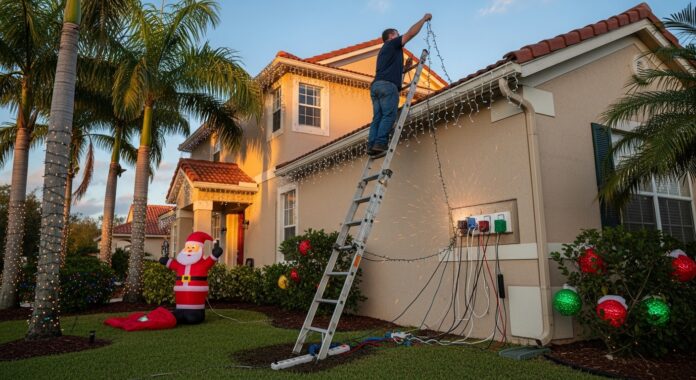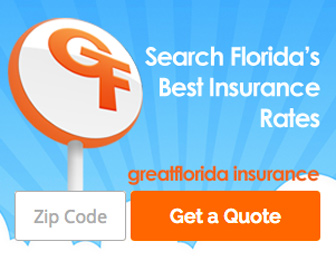The holidays are a joyous time, full of family, festive decorations, and more visitors than usual. But for homeowners, especially in Florida, where warm weather invites outdoor gatherings — the increased activity brings heightened risks of slips, falls, fire, and liability claims.
A single injury could lead to expensive medical bills or a lawsuit under Florida’s premises liability laws. This article shows you how to systematically prevent home holiday liability in Florida, covering proactive steps, legal structures, insurance strategies, and a robust FAQ to guide decision-making.
Why Holiday Liability Is a Real Concern in Florida
-
Increased foot traffic & unfamiliar guests: More people walking through your home increases chances someone trips over an extension cord or loose rug.
-
Decorations, lighting, and electrical loads: Holiday displays involve extra wiring, hanging lights outdoors, and sometimes decorations in walkways that weren’t there before. Faulty wiring or overloaded circuits can start fires or shock hazards.
-
Outdoor and weather-related hazards: Florida’s frequent rain, humidity, and coastal conditions may cause slick patios, mold, or weakened structures.
-
Pools, hot tubs, docks, beach access: Many Florida homes have water features or waterfront access. These are among the most dangerous liability exposures.
-
Premises liability law in Florida: Under Florida law, property owners owe invitees (visitors) a duty of care to inspect and fix or warn hazards.
-
Risk of lawsuits during holidays: Florida Statute § 768.0755 holds owners liable for known hazardous conditions they fail to remedy.
Because holiday liability is a real risk, the most effective approach combines prevention, documentation, and insurance layering. Below is a systematic strategy.
1. Pre-Holiday Safety Audit & Repairs
Do a month-ahead walk-through and fix hazards. Focus especially on:
-
Floors, stairs, thresholds, rugs: secure loose mats, repair uneven transitions
-
Handrails, guardrails, balcony balusters
-
Outdoor pathways, driveways, entry steps: check for cracks, pooling water, uneven pavers
-
Lighting: indoor and outdoor — ensure bulbs work, install motion or path lights
-
Electrical circuits: test extension cords, holiday strings, overloaded plugs
-
Smoke and CO detectors: test and recharge/replace batteries
-
Fire extinguishers: make sure they’re accessible, in date, and people know where they are
-
Landscape trimming: remove low hanging branches or hazards that could trip guests
-
Pool safety: verify fencing, gates, alarms, non-slip surfaces, and compliance with Florida’s Residential Swimming Pool Safety Act (self-latching gate, 4 ft barrier)
A solid safety audit shows that you took “reasonable care,” which helps in defending any claim.
2. Adjust for Holiday Activities
-
Temporarily reroute or cordon off risky areas: e.g. keep children away from stairwells, block off wet patios
-
Use warning signage: if any surfaces are wet or slippery, post visible signs
-
Limit decorative hazards: avoid placing decorations across walkways or in dim corners
-
Manage extension cords: route cords away from pathways or tape them down
-
Supervise food & drink areas: spills happen during parties; mop quickly
-
Plan safe traffic flow: especially for guests with limited mobility
3. Lighting, Visibility & Night Safety
Adequate lighting is a powerful preventive tool:
-
Install motion-sensor or dusk-to-dawn lighting on walkways
-
Add ground-level lighting for steps or uneven surfaces
-
Use temporary plug-in lights for dark corners
-
Avoid glare or excessively bright lighting that can blind guests
-
In Florida, rain or high humidity may reduce visibility — factoring in splash zones and wet surfaces is critical
Proper lighting reduces trip hazards and can be clear evidence of your care.
4. Pool, Water & Deck Safety
Given Florida’s prevalence of swimming pools, hot tubs, and waterfront property, special attention is needed:
-
Pool barriers and gates: ensure self-closing, self-latching gates compliant with state code
-
Pool alarms: optional but provide extra protection
-
Non-slip surfaces: especially around pool decks
-
Clear marking of depth changes
-
Water toys and equipment storage: avoid clutter around pool edges
-
Inspect decks, docks, railings: structural failure from rot or weather can cause catastrophic injury
Since water accidents are among the top claims in Florida vacation home cases, this is not optional.
5. Document Everything
In the event a claim arises, documentation often wins legal battles:
-
Photo survey before holiday guests arrive (interior, exterior, hazards)
-
Inspection logs and repair receipts
-
Guest sign-in, acknowledgment of rules or waiver
-
Incident logs: If any spill/fall occurs, write date/time, witness names, photos, remedial actions
This evidence shows you acted responsibly and diligently.
6. Guest Rules, Contracts & Waivers
-
Provide house rules or a checklist that guests must acknowledge (e.g. no running near pool, supervise children, no barefoot on wet tile)
-
Use a rental agreement or event addendum referencing these rules
-
In high-risk cases, include liability waivers or assumption-of-risk clauses (though their enforceability varies)
-
For parties where alcohol is served, consider a clause stating you may require handing over car keys or limiting alcohol service
Contracts help shift expectations and show you warned guests of known risks.
7. Insurance & Liability Layers
Even with the best prevention, accidents can happen. You need properly structured insurance protection:
a) Homeowners / Umbrella Insurance
-
Ensure your personal liability coverage is robust and includes guest injuries
-
Add an umbrella policy to cover judgments beyond primary limits (e.g. $1–2 million)
-
Check endorsements or exclusions around holiday parties or social host liability
b) Vacation Rental or Short-Term Rental Insurance
If you rent your home (even during holidays), a standard homeowners policy may exclude rental activity. Use a policy designed for short-term rentals:
-
Cover guest injuries, property damage by guests, loss of rental income, and liability defense
-
In Florida, professionals recommend liability base of $1–2 million plus umbrella layers (e.g. $1–5 million) depending on features like pool or water access
-
Be cautious relying solely on platform (Airbnb, Vrbo) policies: they often provide secondary coverage, limitations, and only apply to bookings made through their platforms. They may not cover direct bookings or exclude many claim types.
8. Monitor, Educate & Enforce During the Holiday Period
-
Assign a point person (you or a property manager) to monitor conditions during guest occupancy
-
Provide a guest orientation and safety walkthrough
-
Install warning signage or dynamic alerts if conditions change (e.g. after rain, walkway becomes slick)
-
Be prepared to shut down risky features (pool, deck) if conditions worsen
-
Respond swiftly to guest complaints or hazards reported
Active oversight can help nip hazards before they lead to accidents.
9. After It Happened: Incident Response Protocols
If an injury or near-miss occurs:
-
Record: take pictures, write witness statements, document hazards
-
Assist: provide medical help, assist guest safely
-
Preserve: don’t alter the scene until documented (unless safety demands remediation)
-
Notify insurer promptly
-
Limit statements: do not admit fault or sign anything
Quick, consistent response reflects good faith and may limit damages in litigation.
10. Holiday Liability Checklist (Summary)
| Step | Action |
|---|---|
| Audit & repair | Walk property thoroughly, especially high-traffic zones |
| Adjust layout | Remove tripping hazards, control guest flow |
| Maximize lighting | Especially outdoors, steps, dark zones |
| Water & pool safety | Fencing, alarms, non-slip, structural checks |
| Documentation | Photos, logs, contracts, memorabilia of care |
| Guest rules & contracts | Acknowledge safety rules and rules of conduct |
| Insurance & structure | Use proper policies + LLC/trust shield |
| Monitoring & enforcement | Active oversight while guests on property |
| Incident protocol | Responsive, documented, insurer notified |
With this holistic approach, you reduce the odds of a claim and strengthen your legal defense should one arise.
FAQs
-
Q: What is “holiday liability” for a homeowner?
A: Holiday liability refers to the increased risk of injury, property damage, or legal claims that homeowners face during the holiday season—due to more visitors, decorations, extra foot traffic, and new temporary hazards introduced into the home. -
Q: Is a homeowner legally liable if a guest slips and falls on my property during the holidays in Florida?
A: Yes. Under Florida premises liability law, homeowners owe visitors a duty to maintain safe conditions. If you knew or should have known a hazard and failed to fix it or warn guests, you could be held legally liable. -
Q: Can holiday decorations or lighting increase my liability exposure?
A: Absolutely. Decorations and lighting introduce added electrical load, extension cords, trip lines, and structural hanging risks. Faulty wiring or overloaded circuits and cords crossing walkways are common sources of accidents. -
Q: Does my homeowners insurance automatically cover guest injuries and holiday liability?
A: Not necessarily. Standard homeowners policies include personal liability coverage, but may exclude claims associated with hosting large gatherings or serve alcohol. Also, if your home is used as a rental during holidays, a specialized rental policy is often required. -
Q: Should I consider an umbrella insurance policy for holiday liability protection?
A: Yes. An umbrella policy provides additional liability coverage beyond your homeowners policy limits (often $1 million or more). This extra layer protects you if a guest’s claim exceeds your base limits. -
Q: How does a short-term rental (e.g., holiday rental) affect liability risks in Florida?
A: Holiday rentals are treated as a business activity, and typical home insurance may not cover them. The guest is considered an invitee, increasing your duty of care. Platform policies (Airbnb, Vrbo) offer limited secondary coverage and often exclude certain risks. -
Q: Can placing my property into an LLC or trust reduce my liability?
A: Yes. Holding the property and rental operations under a dedicated LLC (and optionally a trust) helps separate the asset from your personal wealth. In a lawsuit, the plaintiff must target the LLC—not your personal assets, if properly structured. -
Q: What should I include in home safety rules or warnings for holiday guests?
A: Include rules like “no running near pool,” “supervise children,” “wipe up spills,” “do not rest on railings,” and signage near wet floors or other hazards. You might also require guests to sign acknowledgment of rules. -
Q: How should I respond if a guest is injured during a holiday event?
A: Document the scene (photos, witness statements), aid the guest, preserve evidence, notify your insurer promptly, and avoid admitting fault. Seek legal counsel if major injuries or lawsuits arise. -
Q: What preventative measures can I take before the holiday season to reduce liability?
A: Perform a thorough safety audit (floors, handrails, lighting, wiring, pool safety), fix hazards, document conditions, use warning signs, maintain proper lighting, install non-slip surfaces, and confirm insurance and entity protection are in place well before guests arrive.
GreatFlorida Insurance has you covered with ample homeowners insurance to make sure your holidays are merry and bright.



